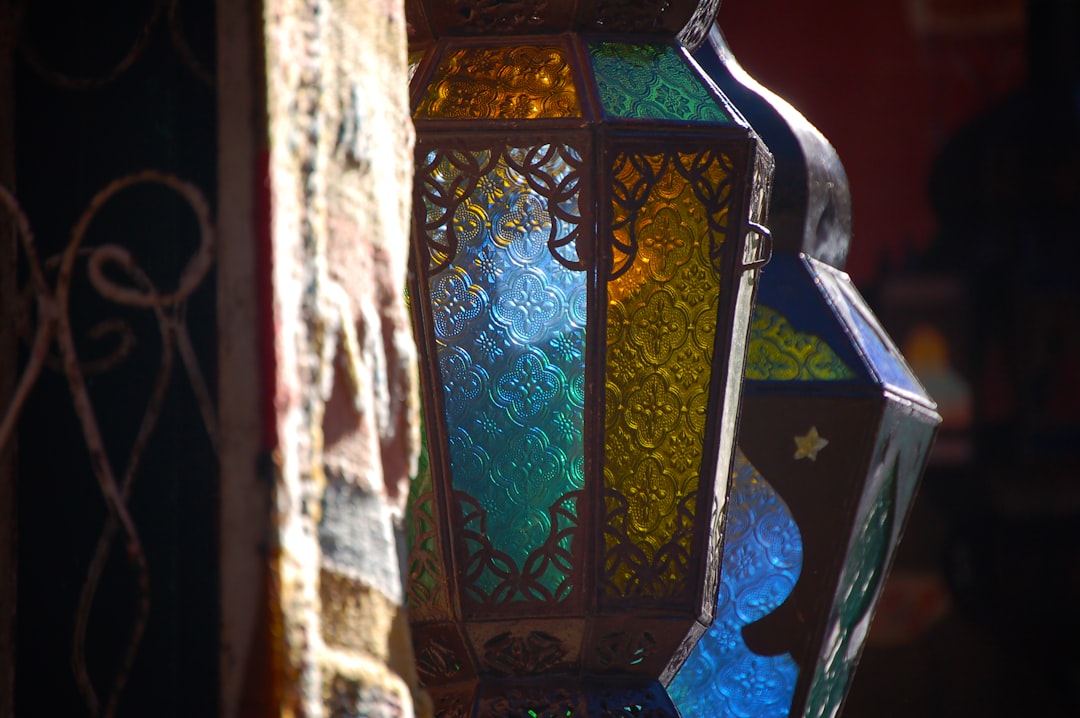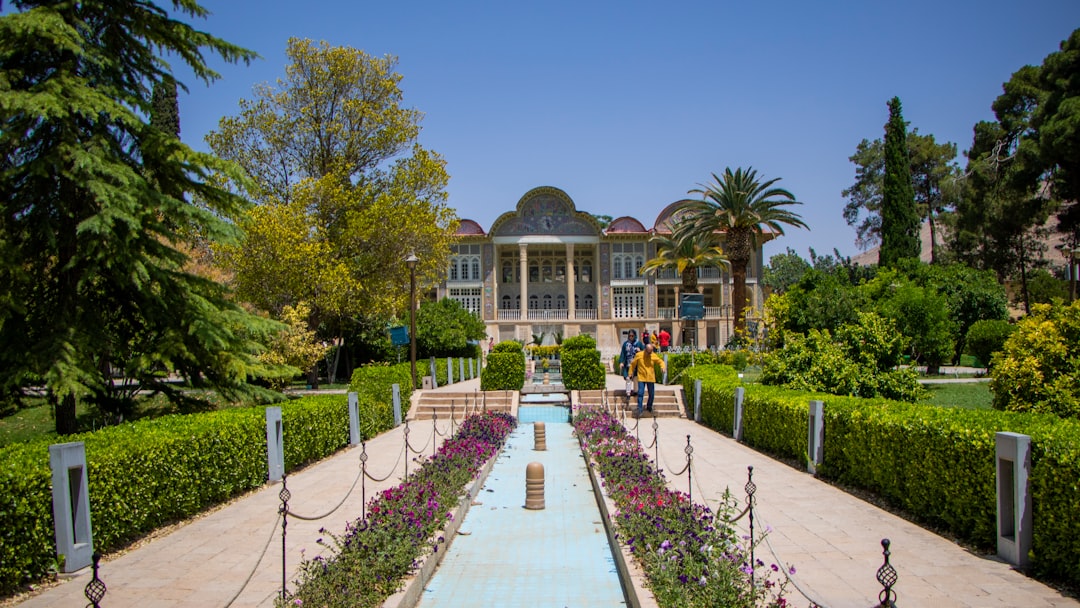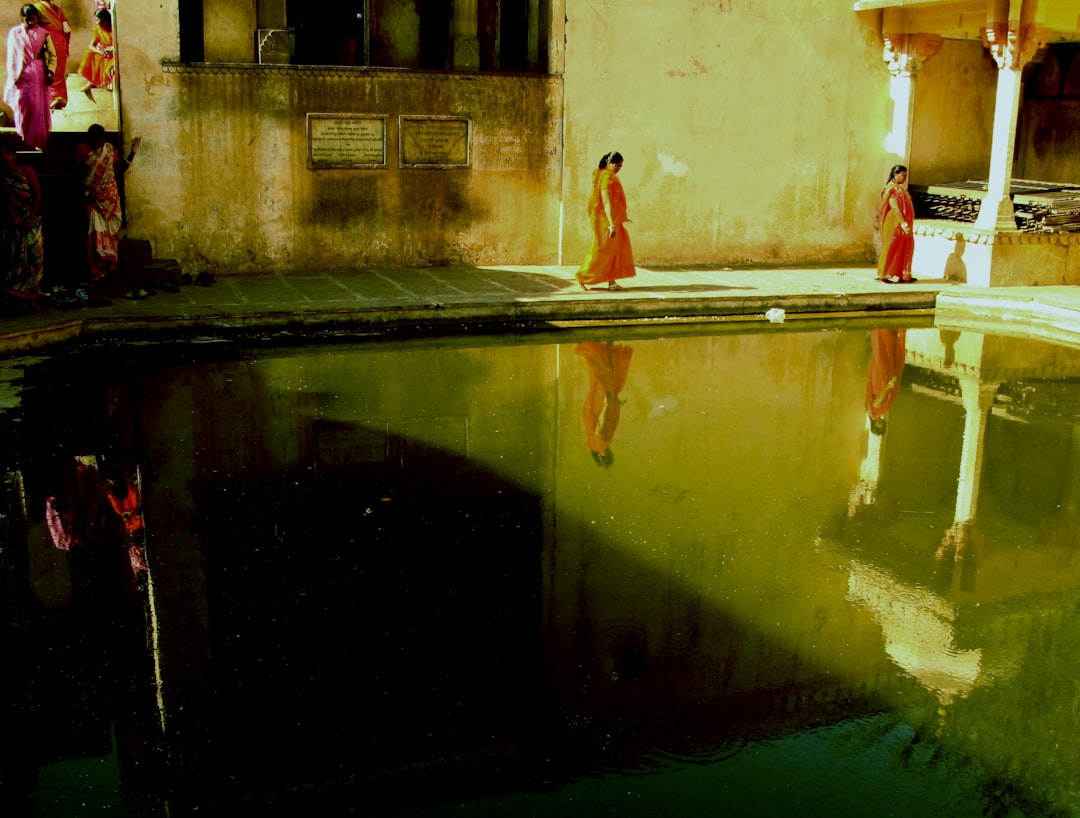Among Hafez’s many love songs, few shimmer as brightly as this ghazal, a meditation on reflection, illusion, and the mystery of love. Each verse turns like a mirror, catching the light of beauty and showing us not the truth itself, but the thousand forms it takes in the dreaming heart.
1. عکسِ رویِ تو چو در آینهٔ جام افتاد / عارف از خندهٔ مِی در طمعِ خام افتاد
When your face appeared in the mirror of the wine cup,
the mystic, deceived by joy, fell into foolish longing.
Hafez begins where vision and intoxication meet. The wine cup, that ancient vessel of divine ecstasy, reflects the beloved’s face. The mystic, seeing that image, forgets the distance between reflection and reality. The laughter of wine, that sudden warmth in the soul, tricks him into chasing what cannot be possessed.
In that mirror of the heart, beauty appears for an instant, and the seeker mistakes the shimmer for the source.
2. حُسن رویِ تو به یک جلوه که در آینه کرد / این همه نقش در آیینهٔ اوهام افتاد
When your beauty flashed once in the mirror,
so many images fell into the mirror of imagination.
A single glimpse of divine beauty births countless forms. The world itself becomes a gallery of reflections, every face, every color, every sound, a trace of that one unseen radiance.
Hafez reminds us that all creation is a mirror in which the Beloved’s face has shone for a moment. Everything we love is a memory of that flash.
3. این همه عکسِ می و نقشِ نگارین که نمود / یک فروغِ رخِ ساقیست که در جام افتاد
All these colors and shapes in the wine
are but one ray of the Cupbearer’s face caught in the cup.
Behind every image there is one light. The wine, the world, and the lover’s dream all borrow their brilliance from the same source, the Cupbearer, the eternal giver of joy.
Hafez sees multiplicity as the play of unity: what we call beauty is just the reflection of the divine radiance broken into a thousand shades.
4. غیرتِ عشق، زبانِ همه خاصان بِبُرید / کز کجا سِرِّ غمش در دهنِ عام افتاد؟
The jealousy of love cut the tongues of the wise,
how then did its secret fall into the mouth of the crowd?
The mystery of love is not something to be spoken of lightly. Those who truly know it are silenced by its fire. Yet everywhere, people speak of love as though it were an easy tale.
Hafez wonders: how can something so sacred, so burning, become a word on every tongue? True love is beyond speech, those who can talk of it have not tasted it.
5. من ز مسجد به خرابات نه خود افتادم / اینم از عهدِ ازل حاصلِ فرجام افتاد
I did not fall from mosque to tavern on my own,
it was written for me since the dawn of time.
The poet’s path from prayer to intoxication is not a fall, but a fate. The mosque and the tavern are two doors of the same house, one seeks God through fear, the other through love.
In Hafez’s world, the tavern is the temple of sincerity. To drink from the Cupbearer’s hand is to taste the truth that lies beyond all rules.
6. چه کند کز پی دوران نرود چون پرگار؟ / هر که در دایرهٔ گردشِ ایام افتاد
What can the compass do but turn?
Whoever falls into the circle of time must revolve.
We are all caught in the circle, the turning of fate, the rhythm of life. Just as the compass must follow its curve, so must the soul turn within the circle of days.
Hafez sees no escape from destiny; yet within that endless motion, there is grace. To turn is to dance, to move as love moves.
7. در خَمِ زلفِ تو آویخت دل از چاهِ زَنَخ / آه، کز چاه برون آمد و در دام افتاد
My heart climbed from the pit of your chin, only to fall into the snare of your curls.
Even when the heart escapes one trap of beauty, it falls into another. Love offers no release, only deeper entanglement.
The beloved’s chin, her curls, her very being are symbols of the divine’s power to bind the soul with wonder. Every attempt at escape is another step into the labyrinth of longing.
8. آن شد ای خواجه که در صومعه بازم بینی / کار ما با رخِ ساقیّ و لبِ جام افتاد
So, my friend, you will not find me again in the cloister,
my path now lies with the Cupbearer’s face and the wine’s lip.
The poet renounces the pretense of sanctity. He has left the dry rituals of the ascetics for the living flame of love.
In the tavern’s laughter, he finds what prayer could not give, the presence that shines through pleasure, the divine hidden in human joy.
9. زیرِ شمشیرِ غمش رقصکُنان باید رفت / کـآن که شد کشتهٔ او نیک سرانجام افتاد
Beneath love’s sword, one must dance,
for whoever dies of it, dies beautifully.
The only way through love’s pain is surrender. The sword of sorrow cuts, but it also purifies. To dance beneath that blade is to accept annihilation, knowing that the wound itself leads to union.
In this verse, Hafez speaks the secret of all mystics: that love kills only to resurrect.
10. هر دَمَش با منِ دلسوخته لطفی دگر است / این گدا بین که چه شایستهٔ انعام افتاد
Each moment, His grace comes to this burnt-hearted beggar in new forms,
behold how worthy this beggar is of reward!
Even in suffering, there is sweetness. The lover, poor and broken, receives endless mercy from the Beloved. The more he burns, the more he is blessed.
Hafez’s humility here is radiant, he stands as a beggar at love’s door, and yet he is richer than kings.
11. صوفیان جمله حریفند و نظرباز ولی / زین میان حافظِ دلسوخته بدنام افتاد
All the Sufis are companions and lovers,
but among them, Hafez the burnt-hearted is the one disgraced.
The poem ends with irony and grace. Others may play at being lovers; Hafez is the one truly consumed, and so he is called “disgraced.”
But that disgrace is his badge of honor. To lose oneself in love is to lose reputation, reason, and control, yet gain the only thing that matters: the Beloved.
The Mirror and the Flame
This ghazal is a mirror of mirrors, each verse reflecting a different angle of love’s light. Hafez does not describe love as comfort or peace, but as a dazzling confusion, a dance beneath a sword, a fall into the endless reflection of beauty.
To love, in his vision, is to become both the mirror and the flame, to be burned and to shine at once.
In the end, the mystic’s journey is not toward understanding, but toward wonder. As Hafez writes elsewhere, “When reason becomes love’s servant, then it finds its rest.”
And so we stand before the mirror of the wine cup, seeing only a reflection, yet feeling in that image the warmth of eternity.





